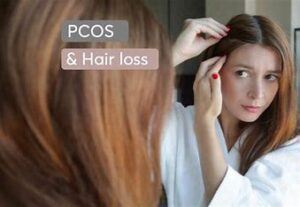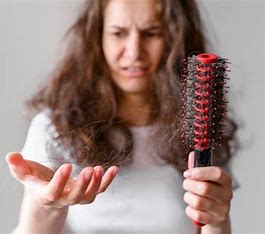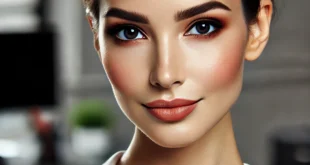Polycystic Ovary Syndrome (PCOS) and Its Impact on Hair Health

Polycystic Ovary Syndrome (PCOS) is a common endocrine disorder that affects many women of reproductive age. One of the lesser-discussed yet significant impacts of PCOS is on hair health, particularly in increasing susceptibility to hair thinning and loss. In this blog, we will delve into how PCOS affects hair health, the underlying causes of these changes, and potential treatments to manage hair thinning and loss.
Understanding PCOS and Its Symptoms
PCOS is a hormonal disorder characterized by an imbalance of reproductive hormones. This imbalance leads to a range of symptoms, which can vary greatly from person to person. Common symptoms include irregular menstrual cycles, weight gain, acne, and excessive hair growth on the face and body. However, it can also cause hair thinning and loss on the scalp, a condition known as androgenic alopecia.
What Causes PCOS?
The exact cause of PCOS remains unknown, but it is believed to result from a combination of genetic and environmental factors. Women with PCOS typically have higher levels of androgens (male hormones) and insulin, which can disrupt normal ovulation and lead to various symptoms, including hair-related issues.
Common Symptoms of PCOS
- Irregular or absent menstrual periods
- Excessive hair growth (hirsutism) on the face, chest, and back
- Acne and oily skin
- Weight gain or difficulty losing weight
- Thinning hair or hair loss on the scalp
- Darkening of the skin, particularly around the neck, groin, and under the breasts
How PCOS Affects Hair Health

PCOS can have a significant impact on hair health due to hormonal imbalances, particularly the elevated levels of androgens. Let’s explore how this condition affects hair on different parts of the body.
Hair Thinning and Loss on the Scalp
One of the most distressing symptoms for many women with PCOS is hair thinning or loss on the scalp. This condition is often referred to as female pattern hair loss or androgenic alopecia.
The Role of Androgens
Androgens, such as testosterone, are present in both men and women. However, women with PCOS often have higher than normal levels of androgens. These hormones can shrink hair follicles on the scalp, leading to hair thinning and, eventually, hair loss. The hair becomes finer and shorter over time, and the growth phase of the hair cycle is shortened, which means hair falls out more quickly and takes longer to grow back.
Excessive Hair Growth (Hirsutism)
While PCOS can cause hair thinning on the scalp, it can simultaneously lead to excessive hair growth on other parts of the body, such as the face, chest, and back. This condition, known as hirsutism, is also driven by elevated androgen levels. The contrast between hair loss on the scalp and increased hair growth elsewhere can be particularly frustrating and distressing for those affected.
Treatments for PCOS-Related Hair Issues
Managing hair loss and thinning caused by PCOS requires a multifaceted approach, often involving lifestyle changes, medications, and cosmetic treatments. Here are some potential options:
Medical Treatments
- Oral Contraceptives: Birth control pills can help regulate menstrual cycles and reduce androgen levels, thereby helping to manage symptoms like hair thinning and excessive hair growth.
- Anti-Androgens: Medications like spironolactone can block androgen receptors, reducing the effects of androgens on hair follicles and slowing down hair thinning and loss.
- Topical Treatments: Minoxidil is a topical treatment that can help stimulate hair growth in women with androgenic alopecia. It is available over-the-counter and can be effective in promoting hair regrowth on the scalp.
- Hair Transplant Surgery: In severe cases, some women may opt for hair transplant surgery, where hair follicles are moved from one part of the scalp to another to cover areas of thinning or balding.
Lifestyle and Home Remedies
- Diet and Exercise: Maintaining a healthy diet and regular exercise routine can help manage weight and reduce insulin resistance, which is often associated with PCOS. A balanced diet rich in vitamins and minerals can also support overall hair health.
- Hair Care Routine: Gentle hair care practices, such as using a mild shampoo, avoiding excessive heat styling, and minimizing the use of harsh chemicals, can help prevent further damage to thinning hair.
- Stress Management: Stress can exacerbate hair loss, so incorporating stress-reducing practices such as yoga, meditation, and deep-breathing exercises can be beneficial.
Cosmetic Solutions
- Hair Extensions and Wigs: For those dealing with significant hair loss, hair extensions, wigs, and hairpieces can provide a quick and effective way to enhance appearance and boost confidence.
- Hair Fibers and Concealers: Products like hair fibers and scalp concealers can help create the appearance of thicker, fuller hair.
Conclusion
PCOS can have a profound impact on hair health, causing both hair thinning and loss on the scalp as well as excessive hair growth in unwanted areas. Understanding the underlying hormonal causes of these symptoms is crucial for effective management. By combining medical treatments, lifestyle changes, and cosmetic solutions, women with PCOS can find ways to manage their hair health and improve their quality of life. If you are struggling with hair loss due to PCOS, consider consulting a healthcare provider to discuss the best treatment options for your specific needs.
Feel free to ask if you need further expansion on any section or additional details!
